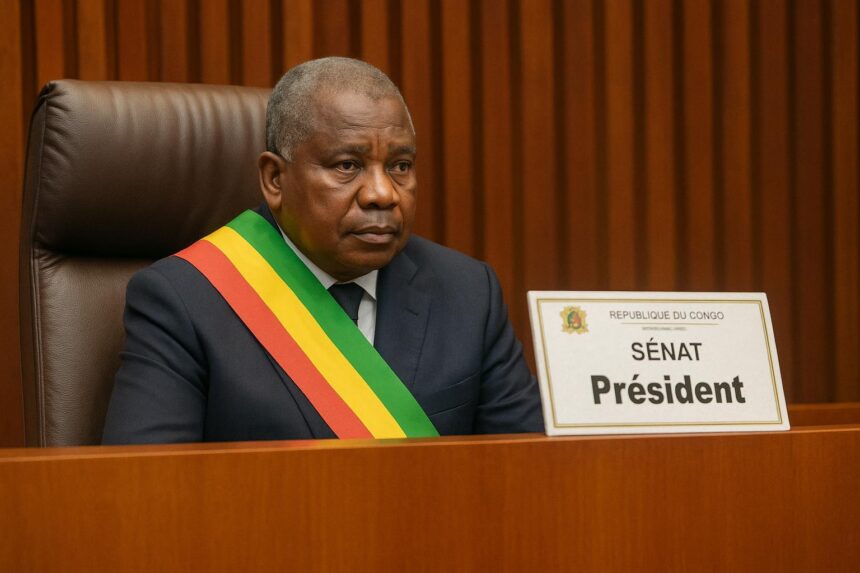Opening of the Budget Session
Traffic echoed outside Brazzaville’s marble Parliament on 15 October as the Seventh Budget Session of the Senate opened, yet inside the hemicycle the conversation quickly veered from figures to fear.
- Opening of the Budget Session
- Security First in the Upper House
- Who are the “bébé noir” and “kuluna”?
- Lawful Crackdown, Not Excesses
- Social Roots Demand Social Answers
- Residents Share Relief and Caution
- Next on the Senate Agenda
- Budget Implications
- Youth Voices Seek a Platform
- Maintaining the Peace Brand Abroad
Senate president Pierre Ngolo devoted most of his keynote speech to the violent outbursts attributed to so-called “bébé noir” and “kuluna” gangs, a youth delinquency wave that has gripped several neighbourhoods with machete attacks, robberies and chilling intimidation.
“We salute the current effort to restore order, but it must last,” he insisted, urging ministers to make sure every measure stays within the Republic’s legal framework.
Security First in the Upper House
Senators across party lines applauded the reminder that protecting citizens is the State’s primordial duty.
Ngolo traced the nation’s taste for peace back to the post-1997 reconciliation steered by President Denis Sassou Nguesso, noting that Congo managed to calm its territory without foreign troops and has since presented stability as its calling card.
Today’s street fear, he argued, threatens that legacy as much as any macroeconomic shock.
Who are the “bébé noir” and “kuluna”?
Local slang paints two profiles, both tragic.
Bébé noir describes minors who, often pushed out of school and left without jobs, form loose crews armed with stones or knives.
Kuluna, imported from Kinshasa argot, refers to slightly older youths brandishing machetes, operating in small sectors, and sometimes filming their raids for social media notoriety.
Police round-ups over recent weeks have reassured residents of Ouenzé, Talangaï and Makélékélé, yet worry persists that the groups will re-form once patrols shift to other hotspots.
Lawful Crackdown, Not Excesses
Addressing the government benches, Ngolo stressed that any crackdown must respect constitutional rights, a nuance vital for a legislature that often faces scrutiny from civil-society lawyers.
He framed legality as both shield and sword: shield, because fair procedures prevent community resentment; sword, because clear sanctions deter repeat offenders.
The chamber’s public affairs committee will, according to his outline, monitor arrest conditions, juvenile detention standards and the reintegration budget line during the three-month budget debate.
Social Roots Demand Social Answers
Beyond patrol vehicles, senators returned again to schooling, apprenticeships and family support networks they say have frayed under urban pressure.
Several speakers pointed out that electricity cuts, youth unemployment and rising transport fares create fertile ground for gang recruitment, so investment decisions in those areas matter as much as new uniforms for police.
A senator from Pointe-Noire evoked the proverb ‘the child who is busy learning a trade has no time to sharpen a blade’, drawing nods across the hall.
Residents Share Relief and Caution
On Talangaï’s Avenue de la Base, shopkeeper Hortense Mayanda told reporters she now closes at eight instead of six because ‘soldiers pass twice each night’.
Yet she keeps a whistle around her wrist, fearing the lull could fade if operations lose momentum after the budget vote.
Next on the Senate Agenda
Ngolo scheduled a special hearing with Interior and Justice ministers for early November to review progress indicators, promising live television coverage to reassure households following the dossier with anxious interest.
If the Senate’s recommendations pass, quarterly security reports could become mandatory, backing the president’s long-standing ambition to entrench peace as a non-negotiable national brand.
For now, the message from the Palais du Parlement is clear: calm has value, and the law will be its guardian as budget season unfolds.
Budget Implications
The 2026 draft budget allocates an additional 4 billion CFA francs to community policing, including solar-powered streetlamps and training for the newly created Youth Mediation Brigades, according to the preparatory documents circulated among committees.
Finance experts inside the chamber say the expenditure is modest compared with the economic cost of insecurity, which has seen some markets lose up to 15 per cent of their evening turnover.
Youth Voices Seek a Platform
Student leader Grâce Mavoungou argued that young people should not appear in the debate only as suspects but also as partners, proposing after-school sports leagues funded through the same security envelope.
She told senators that idle afternoons create the vacuum gangs exploit: ‘Give a teenager a ball and a stage, and the machete loses its shine’.
The proposal gained traction, with the Education and Sports committees pledging to meet jointly before the end of the session, a rare cross-portfolio commitment that observers say underlines the urgency felt across institutions.
Maintaining the Peace Brand Abroad
Diplomats in Brazzaville note that sustained calm bolsters Congo’s bid to attract regional logistics projects, from deep-sea port expansions to fiber-optic corridors, initiatives that hinge on predictable urban safety.
Senators hope the forthcoming security roadmap, combined with the budget package, will provide that reassurance ahead of regional investment forums scheduled for early 2026.
Until then, Brazzaville’s calm nights, punctuated only by the distant whistle of a cautious shopkeeper, remain the litmus test of policies debated under the gilded dome of the Senate and of the collective promise that youth and elders can share the same sidewalks.






















